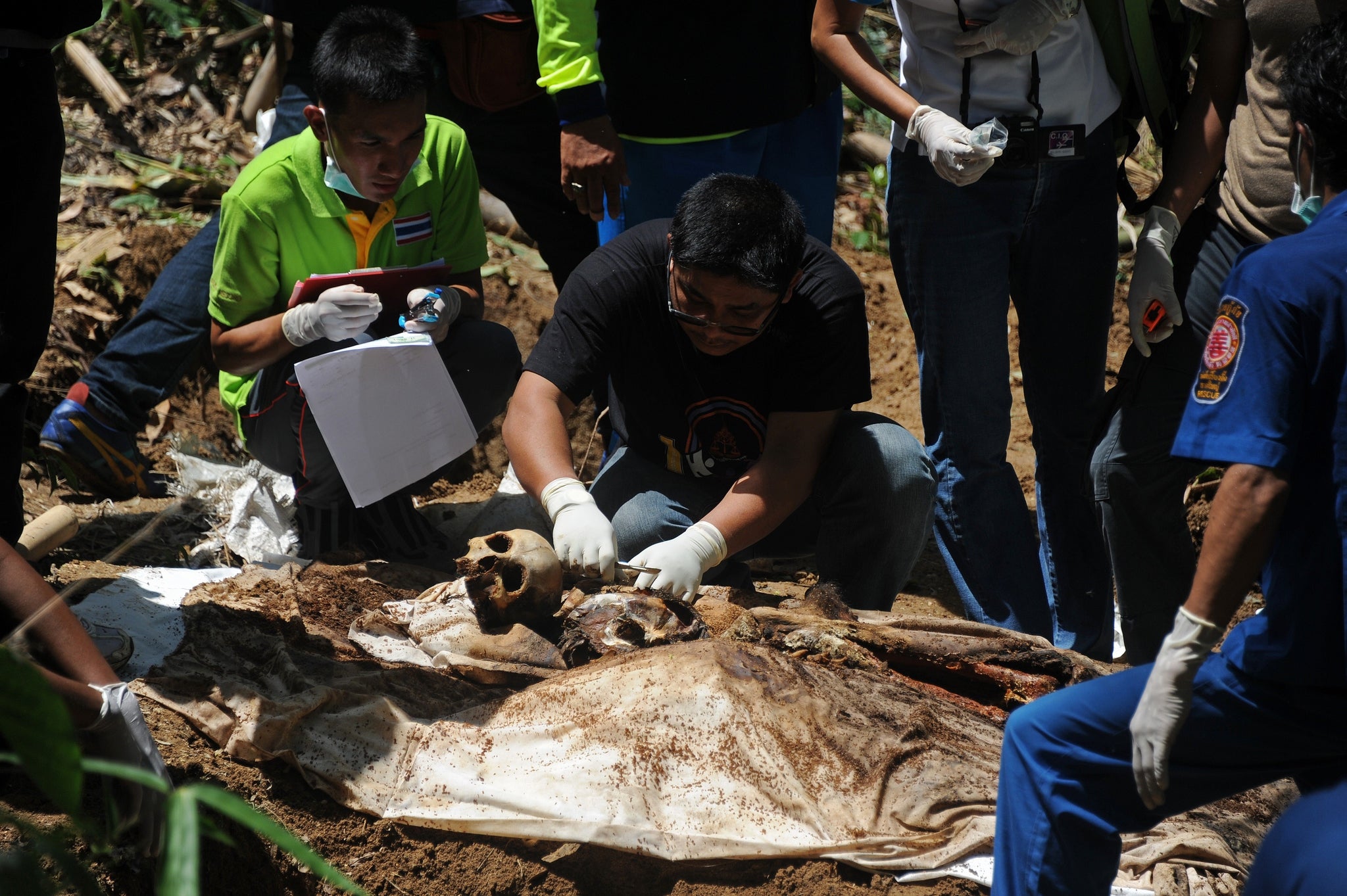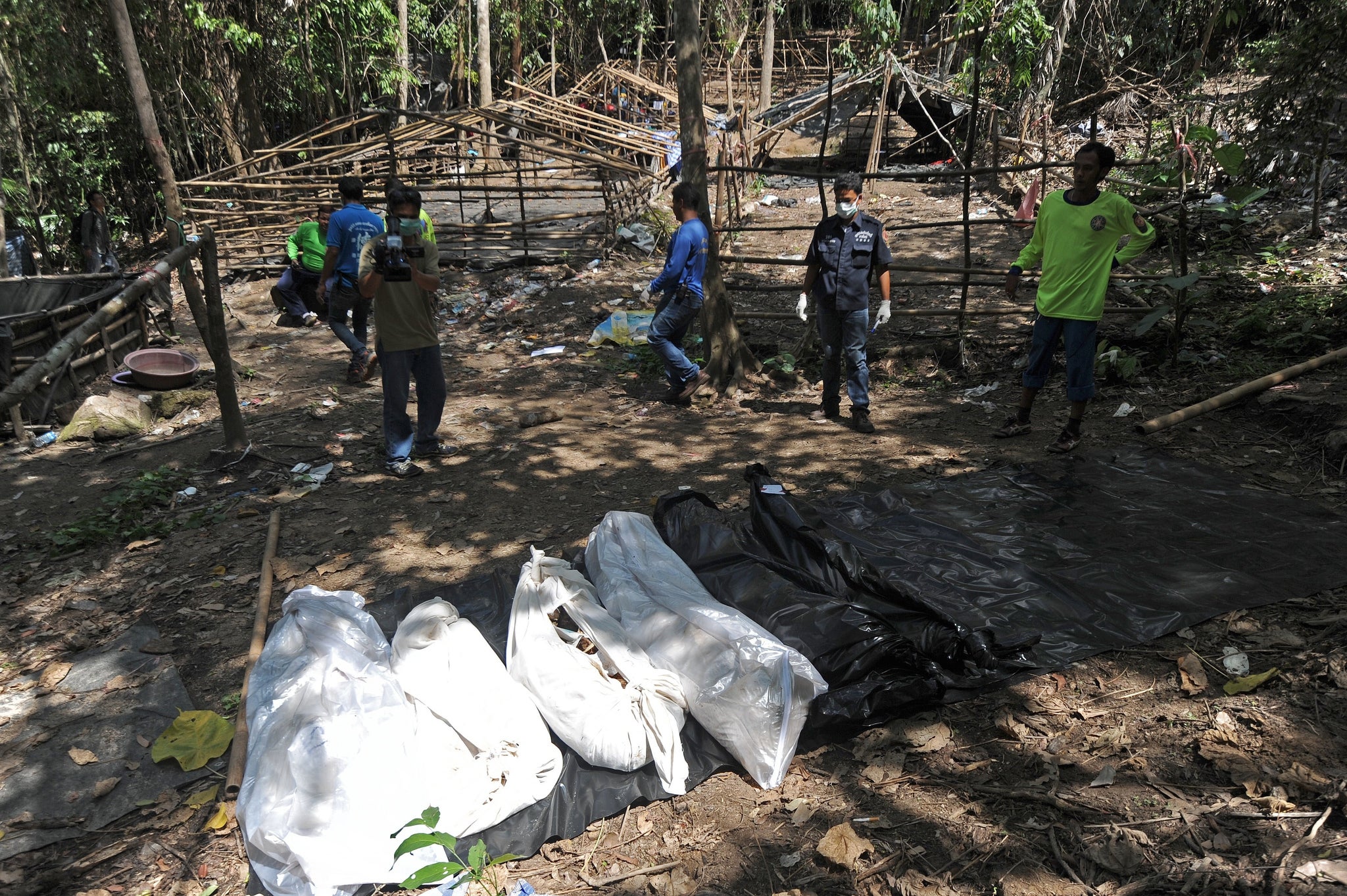Thai police arrest trafficking 'Mr Big' after mass grave of Muslims discovered in the jungle
The grave contained bodies of 26 trafficked migrants

Your support helps us to tell the story
From reproductive rights to climate change to Big Tech, The Independent is on the ground when the story is developing. Whether it's investigating the financials of Elon Musk's pro-Trump PAC or producing our latest documentary, 'The A Word', which shines a light on the American women fighting for reproductive rights, we know how important it is to parse out the facts from the messaging.
At such a critical moment in US history, we need reporters on the ground. Your donation allows us to keep sending journalists to speak to both sides of the story.
The Independent is trusted by Americans across the entire political spectrum. And unlike many other quality news outlets, we choose not to lock Americans out of our reporting and analysis with paywalls. We believe quality journalism should be available to everyone, paid for by those who can afford it.
Your support makes all the difference.Thai police have made arrests linked to a large human trafficking network, after a mass grave containing the bodies of 26 migrants and asylum seekers was found in a jungle near the border with Malaysia.
A man called Soe Naing, known as Anwar, is believed to be a key figure behind the network. He was charged today with human trafficking, false imprisonment and holding people for ransom. Three Thai government officials were also arrested on the same charges.
The arrests are part of a police crackdown on a long-existing human trafficking network that brings persecuted Rohingya ethnic Muslims from Myanmar into Thailand, and holds them captive in camps until they can pay a ransom for their freedom.
The arrests have exposed a link between traffickers and authorities, who many claim have turned a blind eye to traffickers operating in their areas.

Authorities say the area in the mountains of Padan Besar is regularly used to harbour smuggled Rohingya Muslims, who are persecuted in the predominantly Buddhist nation of Myanmar, as well as Bangladeshis and other migrants.
A relatively affluent nation, Thailand is a hotspot for illegal migrants fleeing oppression and poverty in neighbouring countries like Bangladesh and Myanmar.
This makes it easy for human traffickers to exploit and profit from desperate migrants. In 2014, Thailand was downgraded from Tier 2 to Tier 3 in the United States' annual Trafficking in Persons report.
Tier 3 is reserved for nations who are not making significant efforts to comply with minimum anti-trafficking efforts.
Anwar's arrest, and the uncovering of the camp containing 26 bodies on Friday, is the first major blow to the Thai human trafficking industry since the crackdown began. Activists and some Thai officials say the industry has been allowed to flourish for years amid indifference and sometimes complicity by Thai authorities.
Speaking about Anwar's arrest, Police Colonel Anuchon Chamat said: "This is huge. He's a big guy, a top guy."

Anuchon said that phone records, witness statements and phone records point to Anwar playing a central role in the operation. He added that police are collecting DNA evidence from the mass grave, which may contribute to any potential murder charges.
A single survivor was found at the abandoned camp, a 28-year old Bangladeshi man named Tutan Saha who had regularly been beaten by captors who demanded a ransom he couldn't pay.

Other previous inmates of the camp describe a constant stream of beatings, murder and intimidation. It is believed the camp was hurriedly evacuated just days before police arrived.
Anwar denies any involvement in trafficking, and said he was framed by people with grudges against him.
Police Lieutenant Colonel Phongsathorn Kueaseng said the network grossed around 10 million baht (£198,463) a month.
Additional reporting by Reuters
Join our commenting forum
Join thought-provoking conversations, follow other Independent readers and see their replies
Comments